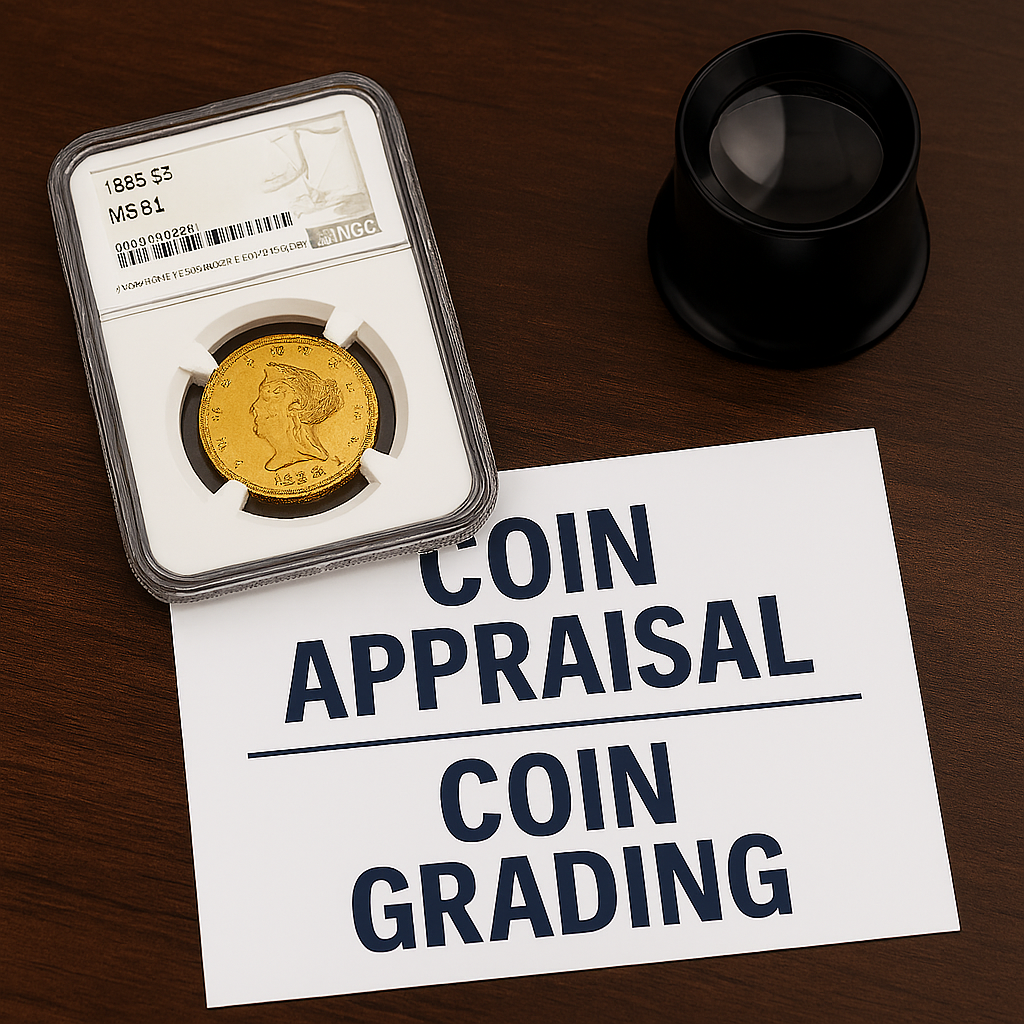The Difference Between Coin Appraisal and Coin Grading: What Every Collector Should Know
Understanding the Language of Numismatics
Clearing the Confusion
For new and seasoned collectors alike, the terms coin grading and coin appraisal can sound like two ways of saying the same thing. After all, both involve evaluating your coins, right? Not quite. While they’re both essential to understanding the value of your collection, these services serve distinct purposes and require different expertise. If you’re planning to sell, insure, or expand your collection, knowing the difference can save you time, money, and frustration.
Coin Appraisal: Determining Market Value
What Is a Coin Appraisal?
A coin appraisal is a professional evaluation of a coin’s estimated market value. Appraisers look at multiple factors—condition, rarity, demand, and current market trends—to determine what the coin could reasonably sell for in today’s market. Unlike grading, which focuses on physical condition, appraisals consider a broader context.
An appraisal is typically used for:
- Estate or inheritance planning
- Insurance purposes
- Selling or trading coins
- Portfolio valuation for investors
Appraisers may or may not assign a grade during the process, but their primary goal is to provide a value estimate, not necessarily a formal certification.
Coin Grading: Assessing Physical Condition
What Is Coin Grading?
Coin grading is the process of evaluating a coin’s physical characteristics—wear, strike quality, luster, and eye appeal—and assigning it a numerical grade, typically on a 70-point scale (e.g., the Sheldon Scale). This grading is often performed by third-party certification services like PCGS, NGC, or ANACS, and results in the coin being encapsulated in a tamper-evident holder.
Grading is especially important for:
- Rare or high-value coins
- Coins intended for resale
- Auction submissions
- Establishing authenticity
Grading doesn’t necessarily tell you how much the coin is worth on the market—it tells you its condition. Market value still depends on additional factors such as rarity and demand.
When You Need One vs. the Other
Use Cases and Timing
- If you’re simply curious about a coin’s worth or planning to sell, an appraisal is the logical first step.
- If you believe your coin is of significant value or you’re preparing it for sale at auction or investment, grading may be the next step after an appraisal.
- Insurance companies often require appraisals for policy coverage—not necessarily a grade.
In some cases, both services may be used together to provide a complete picture, especially for serious collectors or estates handling large collections.
Knowledge is Profit
Understanding the distinction between coin appraisal and coin grading empowers you to make informed decisions about your collection. Whether you’re selling a single piece or evaluating an inherited portfolio, knowing which service to seek can make all the difference in how you protect, promote, and profit from your coins.




